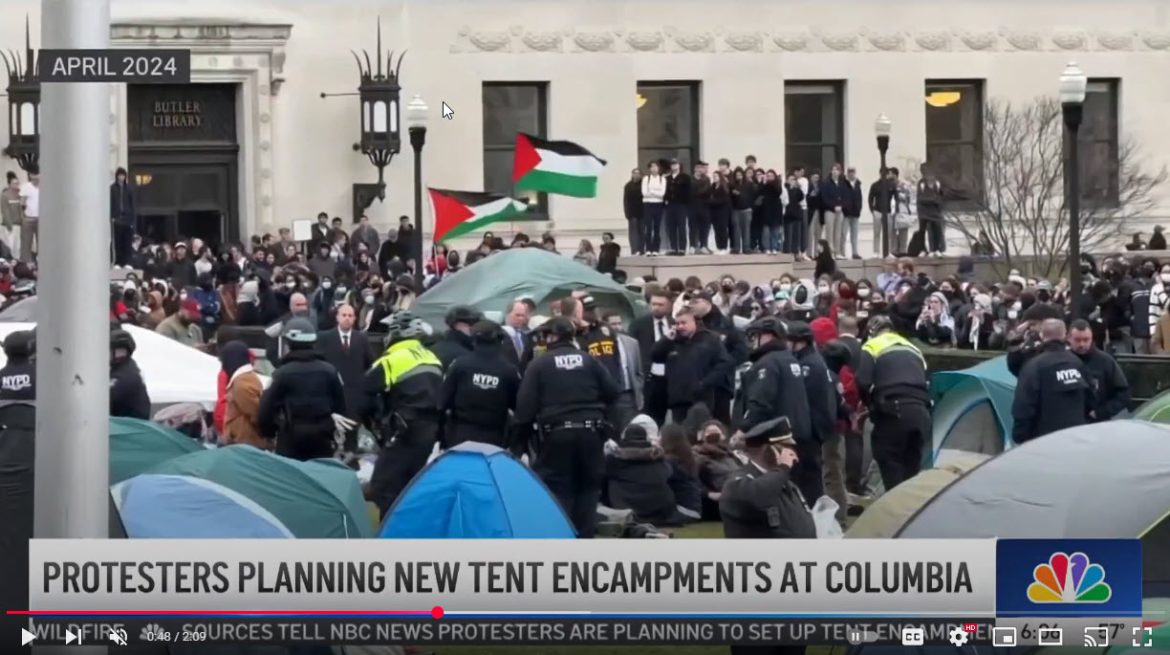Columbia University is once again at the center of national attention as student protestors reportedly plan to reestablish encampments on campus this afternoon in response to the ongoing Israel-Gaza conflict. The expected demonstrations follow weeks of mounting tensions and mirror similar campus actions erupting across the country as students demand institutional divestment from companies linked to Israel and express solidarity with Palestinians in Gaza.
Protests at Columbia have intensified since the beginning of April, when students initially erected encampments on the university’s South Lawn. That demonstration, which drew widespread media coverage, was dismantled after several days amid warnings from university officials about violations of campus policy. Despite the crackdown, students and advocacy groups have signaled their intent to return, with renewed momentum fueled by recent developments in the Middle East and growing discontent over administrative responses to pro-Palestinian activism.
In anticipation of today’s planned demonstrations, Columbia University’s Department of Public Safety has issued a statement affirming the institution’s commitment to free expression while stressing that protest activity must remain peaceful and in compliance with university rules. “We support the right to protest,” the statement reads, “but actions must respect campus policies to ensure safety for all members of our community.”
The planned resurgence of encampments has also caught the attention of political figures, including New York Congresswoman Elise Stefanik, a staunch ally of former President Donald Trump. Stefanik echoes Trump’s recent comments calling for swift consequences for any student who engages in what he describes as “antisemitic vitriol.” Stefanik emphasizes that she is closely monitoring the university’s handling of any incidents involving threats or violence directed at Jewish students.
The university, like many others nationwide, faces mounting pressure from both sides of the conflict. Jewish students and organizations have expressed concern about safety and the tone of some protest messaging, while pro-Palestinian students argue their activism is being unfairly labeled as hate speech. The balancing act between allowing protest and maintaining campus safety has proven politically and logistically challenging for university administrators.
Columbia’s leadership has faced criticism for what some perceive as a delayed or inconsistent response. Previous efforts to de-escalate tensions, including facilitated dialogue sessions and expanded campus security, have had mixed results. With the semester nearing its end and final exams approaching, faculty and students worry that renewed unrest could further disrupt academic life.
This latest round of protests is part of a broader national wave of campus activism surrounding the Israel-Gaza war. In recent weeks, students at Yale, UCLA, the University of Michigan, and others have engaged in demonstrations, sit-ins, and hunger strikes demanding institutional action, transparency on endowment investments, and expressions of solidarity with Palestinians.
Internationally, the humanitarian situation in Gaza remains dire, with growing calls from global leaders for a ceasefire and renewed diplomatic efforts to end the conflict. In the United States, the Israel-Gaza war has become a flashpoint for debates about free speech, antisemitism, Islamophobia, and the limits of political protest — especially in academic environments.
As Columbia prepares for what may become another flashpoint in this national conversation, both supporters and critics of the encampment movement are watching closely. University officials have not confirmed whether they plan to intervene preemptively or wait to respond based on the scale and conduct of the protest.



